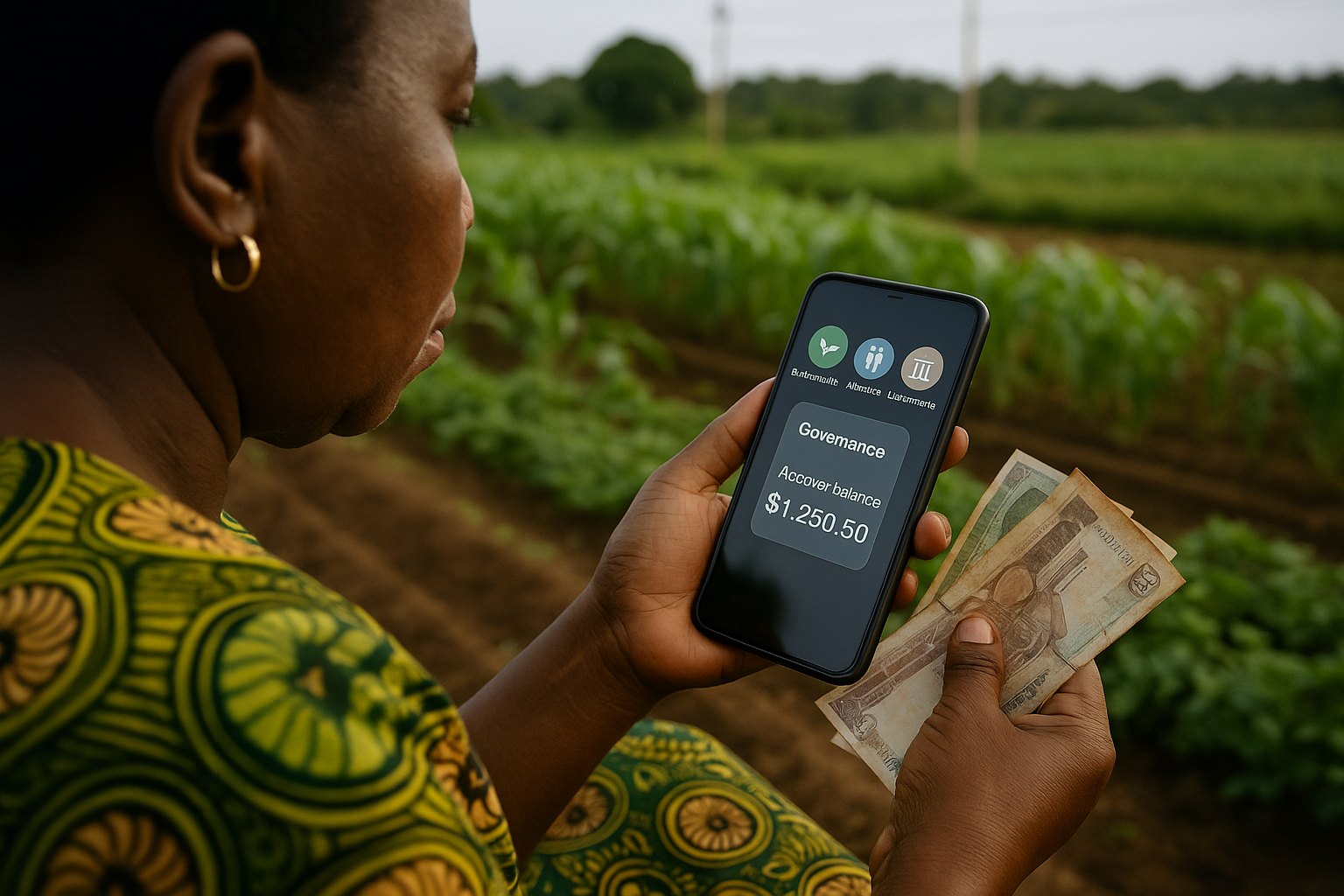ESG reforms drive financial inclusion in emerging economies
Environmental sustainability indicators appear to play a dual role in shaping financial access. On the positive side, the research finds that countries exhibiting strong engagement in sustainable practices, such as the use of green energy, expansion of protected land areas, and advancement in sustainable agriculture, tend to report higher levels of financial inclusion. These environmental efforts likely signal institutional commitment and international partnerships, fostering conditions that enhance citizen access to financial services.

Environmental, Social, and Governance (ESG) dimensions are not just ethical ideals but actionable levers for inclusive growth, reveals a new study that examines the relationship between ESG factors and financial inclusion across 103 emerging and developing economies. The paper, titled Bridging Sustainability and Inclusion: Financial Access in the Environmental, Social, and Governance Landscape”, is published in the Journal of Risk and Financial Management (Vol. 18, Issue 7).
Based on panel data from 2011 to 2022, the authors explore how financial access, defined as the proportion of adults holding accounts with formal financial institutions or mobile money providers, is affected by national ESG-related metrics. The study employs both econometric methods and machine learning tools to uncover multidimensional patterns, offering a comprehensive view of how ESG pillars interact with economic empowerment in the Global South.
What drives financial inclusion from an environmental standpoint?
Environmental sustainability indicators appear to play a dual role in shaping financial access. On the positive side, the research finds that countries exhibiting strong engagement in sustainable practices, such as the use of green energy, expansion of protected land areas, and advancement in sustainable agriculture, tend to report higher levels of financial inclusion. These environmental efforts likely signal institutional commitment and international partnerships, fostering conditions that enhance citizen access to financial services.
However, the study also flags a counterweight: nations heavily reliant on traditional agriculture, as evidenced by land-use patterns and value-added output from the sector, often see reduced financial access. The authors interpret this as a reflection of informal economic structures and weak financial infrastructure in rural regions, where low ESG integration hinders the spread of formal financial services.
By combining traditional panel data regression with Two-Stage Least Squares (2SLS) modeling to address endogeneity, the research confirms a statistically significant relationship between green development and financial account ownership. ESG-related instrumental variables, such as climate resilience scores and digital penetration rates, further validate the findings. The evidence strongly suggests that modernizing environmental policies can serve as a catalyst for economic inclusion.
How does the social pillar influence financial access?
Among the three ESG pillars, the Social dimension shows the most consistent and powerful influence on financial inclusion. The study identifies key facilitators including public expenditure on education, access to the internet, availability of sanitation services, and gender equity initiatives. These social factors not only improve quality of life but also serve as foundational elements in enabling citizens to engage with digital and conventional financial systems.
Countries investing in female empowerment and gender-equal policies recorded better financial inclusion rates, pointing to the interdependence between social progress and economic opportunity. Likewise, widespread access to the internet and sanitation facilities enhances the feasibility and trust in mobile banking platforms, especially in remote and underserved regions.
In contrast, nations with a large share of informal labor markets experienced a suppression of financial inclusion. Informality in employment is often linked with limited access to official documentation, social security systems, and banking infrastructure. The research argues that mitigating informality must be a priority for improving inclusive financial landscapes.
These conclusions are reinforced through machine learning clustering algorithms, which segment countries into typologies based on ESG performance and financial inclusion patterns. The analysis highlights distinct profiles, ranging from high-ESG-high-inclusion nations to those with persistent structural deficiencies, that can guide targeted policymaking.
What role does governance play in fostering financial inclusion?
The Governance pillar yields more nuanced and sometimes contradictory results. Indicators such as voice and accountability, regulatory quality, and control of corruption generally correlate with improved financial access. These governance qualities build institutional trust, support regulatory clarity, and ensure that banking systems can operate transparently and safely.
However, the study notes that some governance variables, such as political stability and government effectiveness, exhibited weaker or inconsistent correlations across regions. This variability could reflect the complex interplay between political systems, regulatory enforcement, and informal economic practices. For instance, even in politically stable environments, entrenched bureaucracy or monopolistic banking structures may limit account access for marginalized populations.
Notably, the research finds that improvements in regulatory quality have a particularly strong and direct relationship with financial inclusion. This underscores the need for governments to streamline financial legislation, reduce barriers to entry for fintech services, and ensure fair access across socio-economic segments.
The study clearly states that governance should not be treated as a static or isolated variable but rather as an evolving framework that intersects with both environmental and social policies. Cross-pillar coherence, where governance supports environmental innovation and social equity, produces the most robust inclusion outcomes.
- FIRST PUBLISHED IN:
- Devdiscourse










